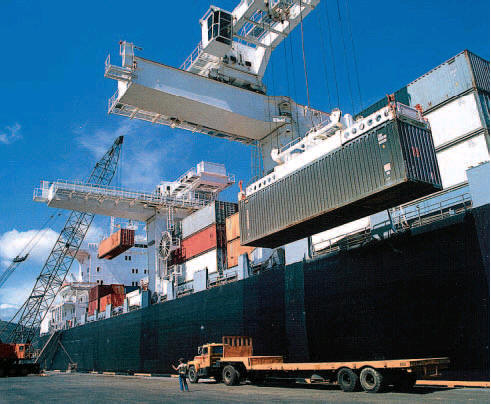|
The article copied below appeared in TradeWinds, the shipping industry publication. The weekly paper and its associated web site provide regular coverage of developments concerning Crowley Maritime and other water transportation companies. |
|
Crowley bracing for streamlining
A major internal restructuring looks set to shake up the US flag’s biggest shipowner.
Bob Rust, Oslo
Crowley Maritime Corp, the US flag’s biggest shipowner, is said to be planning an internal restructuring that could affect its New Jersey operations, say sources close to the company. The streamlining will cut costs but also affect Crowley’s eligibility to bid for US government shipmanagement contracts. Sources expect one of Crowley’s four headquarters to be downgraded or even eliminated. Crowley also means to consolidate subsidiaries left over from its acquisition of Maritime Transport Corp (MTC) in 2002. Crowley staff had not responded to inquiries when TradeWinds went to press. Crowley, which turned over just under $1bn in operating revenues last year, has its corporate headquarters in Oakland, California, hometown of chairman and chief executive officer Thomas Crowley Jr. But operations are centred in Jacksonville (liner services, Gulf and East Coast tugs, finance and accounting), Seattle (West Coast tugs, Alaskan operations) and Secaucus, New Jersey (tankers and seven managed boxships). Crowley has ATB tonnage under construction and clearly means to stay in the tanker business even if its New Jersey base is vulnerable to cuts. Last year, Crowley renewed leases on New Jersey premises inherited from MTC. But sources point out that Crowley’s centre of gravity has been steadily moving towards Jacksonville and says that process is likely to continue. The timing of the reorganization is said to be connected to the upcoming award of Ready Reserve Force (RRF) operations contracts, on which Crowley has bid. The US Maritime Administration (MarAd) has postponed announcement of new RRF contracts but an award to several companies is widely expected this month. Crowley holds the lion’s share of these through four subsidiaries that meet the requirements to compete separately for such contracts. Shedding subsidiaries will presumably mean more RRF contracts for Crowley’s competitors. The RRF is not a large business line for Crowley but provides many seafarer jobs. One source expects the company to carry out a consolidation no matter what government lawyers decide on the consequences for bidding government work. Under five-year contracts awarded in 2000 to Crowley and three companies that it subsequently acquired, Crowley has been operating as many as 23 RRF ships. The total RRF has shrunk from 68 to 54 ships during the period. Crowley’s subsidiaries and their names track a series of consolidations in the industry. In 1989, Richard du Moulin and Mark Filanowski’s Intrepid Shipping took over the formerly stocklisted Maritime Transport Lines (MTL), which was an RRF contractor among other things. Then in 1998, MTL was bought by a previous incarnation of today’s OMI Corp and promptly spun off, taking OMI’s US-flag fleet with it, including RRF contractor Intrepid Ship Management. In 2000, MTL acquired Mormac Marine, which also held RRF contracts. Crowley, an RRF contractor in its own right, bought the lot in 2002. Du Moulin and Filanowski still use the Intrepid Shipping name for their shipping investment projects.
|
